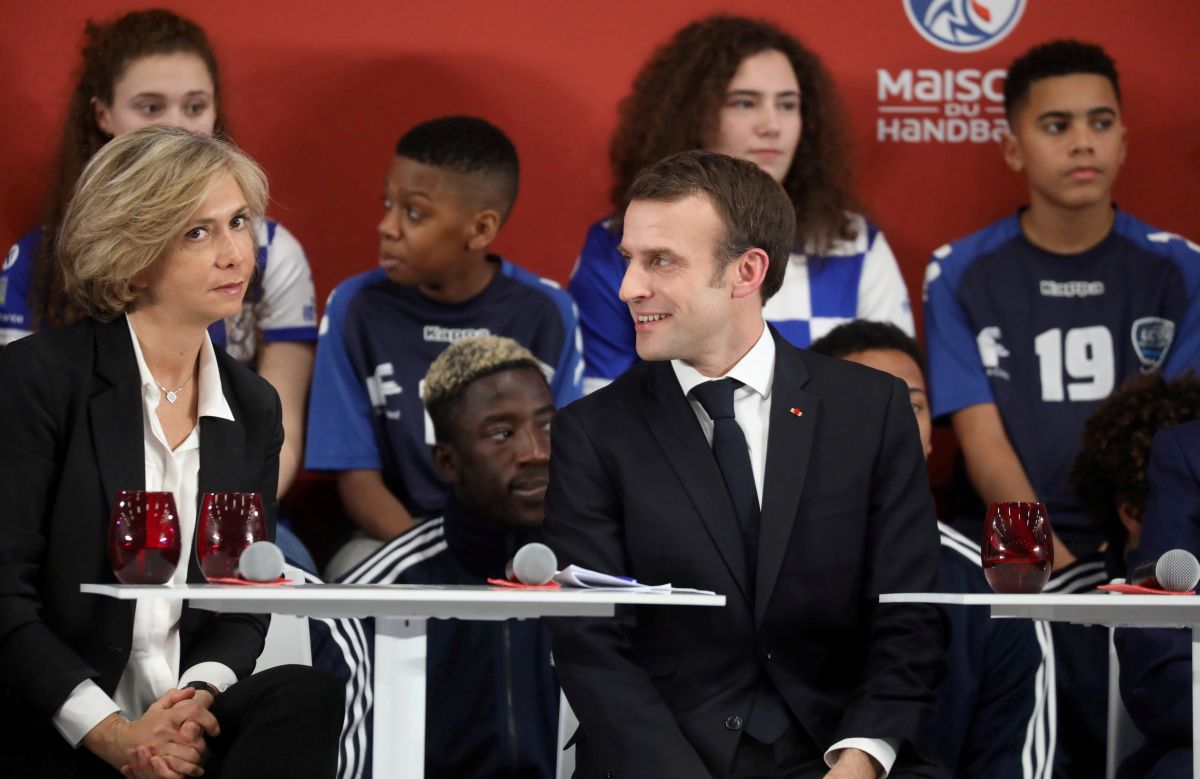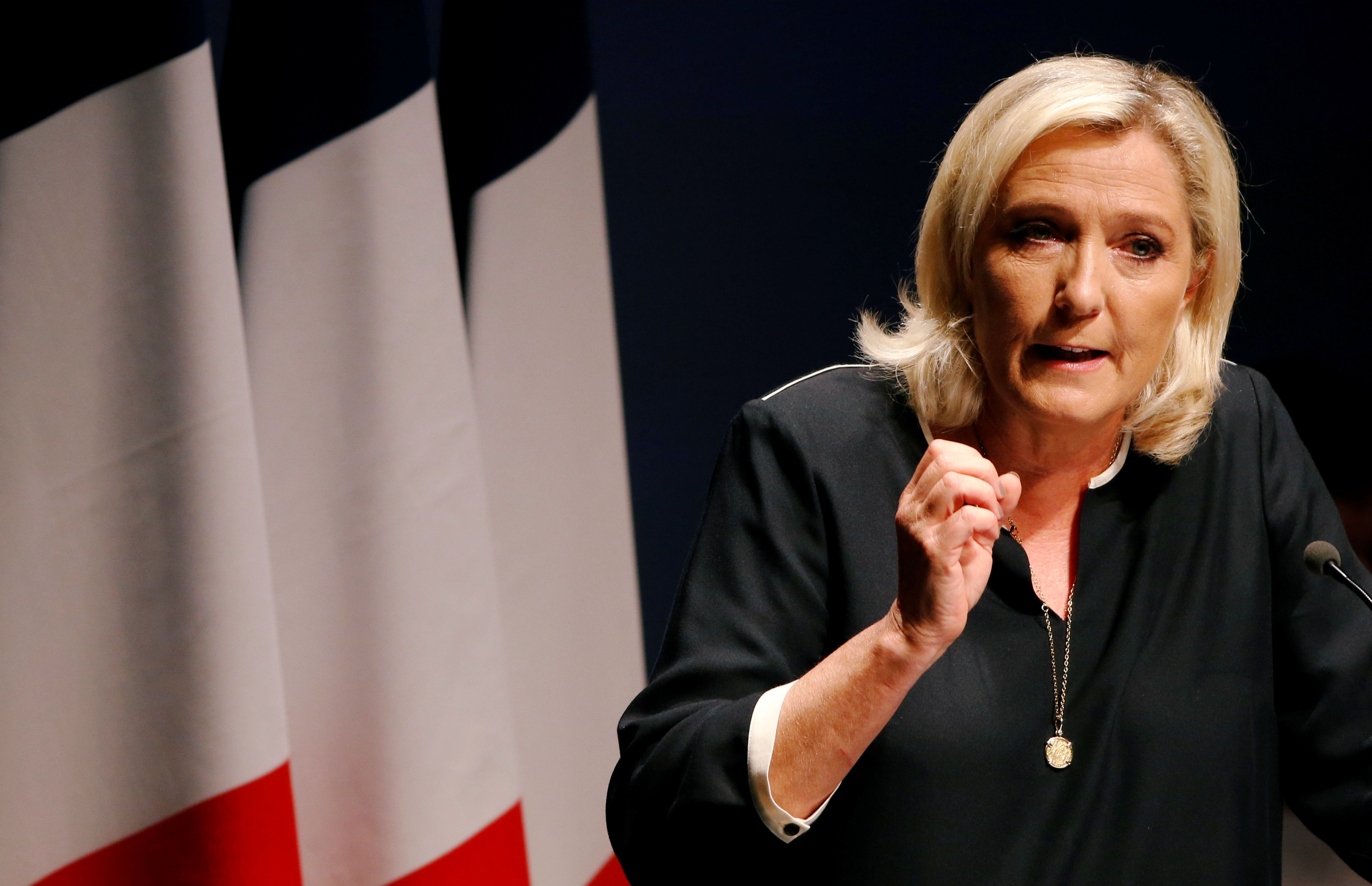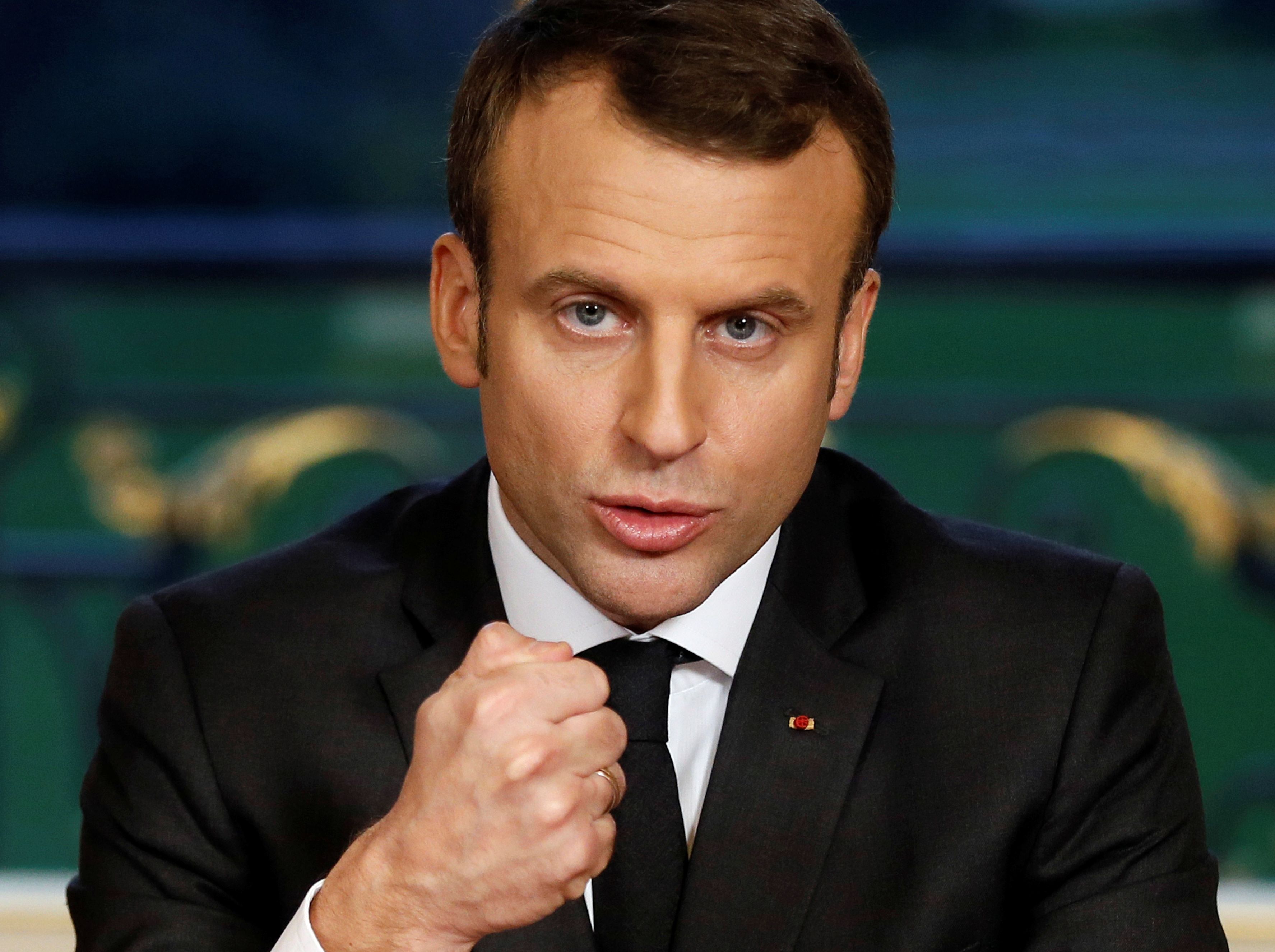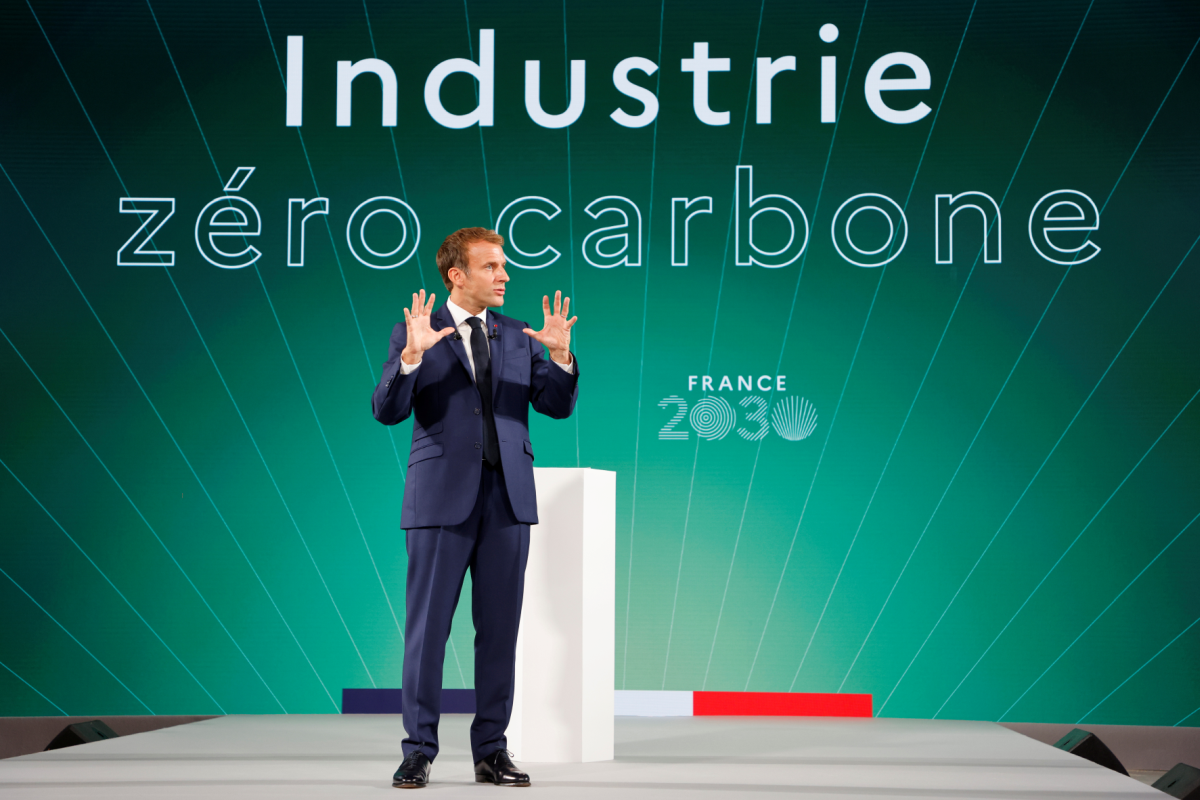COVID, Economy, Security: Themes of the French Presidential Campaign
While the French election campaign focuses on internal issues, the most important of them, including fighting the pandemic, the economy, environmental protection, and security issues, relate to the debate over globalisation and European integration. Macron’s policy of strengthening cooperation with partners in the EU and NATO is being criticised by the centre-right candidate Valérie Pécresse or negated by the far-right and far-left. Despite the different views on the future of the EU and the transatlantic partnership, the re-election of Macron seems to be the best scenario for Poland’s interests.
 Fot. Reuters/ POOL/ FORUM
Fot. Reuters/ POOL/ FORUM
Presidential Campaign
The first round of presidential elections in France is scheduled for 10 April 2022. Macron is the favourite in the polls (around 25%). Pécresse, the candidate of the centre-right Republicans (LR) and Marine Le Pen, the leader of the far-right National Rally (RN), are competing for a place in the second round (both are polling at 15-17%). Le Pen is threatened by another representative of the far-right, Eric Zemmour (12-13%). The divided left has little chance: the populist Jean-Luc Mélenchon (around 10%) maintains an advantage over the centre-left candidates, Jannick Jadot from the Green party (5-8%) and Socialist Anne Hidalgo (3-5%).
Among the topics important to the French at the turn of 2021 and 2022, economic issues dominate (about 50% of respondents). The public also considers the problems of security (44%), immigration (39%), and environmental protection (33%) to be significantly important. Previous research has shown that health protection ranks high with respondents (83%), as does the pandemic (68%.) Foreign policy is not seen as a key issue. France’s role in the world is a priority for just 13% of French, while European integration (12%) and globalisation (6%) are even lower. However, in the statements by Macron and his competitors, these issues appear very often in the context of domestic politics.
Macron’s Chances
The focus on the pandemic will not necessarily hurt Macron’s chances. While restrictions on the unvaccinated (e.g., vaccine passport requirements) are met with resistance, they allow Macron to portray himself as the one making difficult decisions in the interests of French citizens. The high vaccination rate (around 80%) has reduced the number of deaths and is helping that argument. The pandemic has also become an opportunity for the president to talk about the security of supply and dependence on unpredictable partners (i.e., China). It also induced EU countries, with Macron alongside, to incur joint debt and joint vaccine purchases.
In France, there is consensus on the need to fight global warming (about 90% of respondents agreed the premise, according to a poll from the end of 2020). However, only about half of the French are ready to accept a lower standard of living for this purpose. Since the “Yellow Vests” protests in 2018, Macron has been emphasising the need to reconcile economic growth with an environmental commitment. The only way to do this is to act on a supranational level, such as securing the interests of French nuclear energy within the EU’s “green taxonomy”. The president also favours reducing the emissions advantages of other economies in French trade with the EU (through a carbon tax).
The increase in the purchasing power of the French during Macron’s presidency (about 1.6% annually) has not been equal, with the poorest five percent seeing a decrease of about 0.5%. Macron says the reduction in benefits is necessary to make industry more competitive. The scale of the problem is shown by the foreign trade deficit, which is estimated to have reached €88 billion in 2021. As a counterpoint to efforts to reduce business costs and social security contributions in France, Macron is promoting the idea of a “social Europe” during the French presidency of the EU Council. He supports a minimum wage in the EU, taxation of digital giants, and harmonisation of CIT rates.
The weakness of the left has allowed Macron to focus on winning the votes of right-wing voters frightened by immigration and supposed threats to national identity. The main steps in this direction are laws combating “Islamic separatism” and strengthening the competences of the police. At the beginning of January, the president announced a plan to increase police patrols and provide an additional €15 billion to the security services. Macron believes that migration can be limited by reform of Schengen, EU asylum law, and a common stance towards countries that are the source of migration.
Strategies of the Opposition
General exhaustion from the pandemic encourages the opposition to attack the government and Macron on how it is being fought. However, the investments of hundreds of billions of euros in saving lives, the economy, and citizens’ purchasing power have overshadowed the initial lack of masks and the chaos in schools. The far-left and the far-right may seek voters by criticising vaccine passports, but it is risky for the centre-right Pécresse to enter the arena. Eurosceptic candidates cannot explain how a “sovereign” France could fight the pandemic more effectively.
The opposition does not contest the need to limit global warming, but the right is replacing the discussion on ecology with a debate on France’s energy policy. Pécresse and Le Pen criticise Macron for intending to shut down some nuclear power plants and the failure to reach an agreement with the European Commission on state aid for the EDF group. There is strong opposition to wind energy among the right-wing electorate (who see it as spoiling the landscape and lowering land prices). In contrast, those on the left (Jadot and Mélenchon) call for abandoning the atom. Left-wing criticism of Macron’s ecological policy is also ineffective, as citizens fear a decline in living standards due to radical measures in this area.
Some in the opposition also accuse Macron of giving up French economic interests to foreign countries (especially to the U.S. and some EU partners). Some challengers, particularly Le Pen, Zemmour, and Mélenchon, are thus evoking anti-German sentiment. According to them, France’s trade deficit is the result of a policy of pushing through exports by the German government, and not from the lower competitiveness of French companies. The far-right also wants to increase the already generous social benefits for the French by cutting off immigrants from them. Pécresse accuses the president of inconsistency in the fight against “social dumping” in the EU and reducing the cost of the social system in France. At the same time, she criticises the ideas of tax harmonisation in the EU and common debt, which she justifies as concern for French sovereignty.
The fear of immigration from Muslim countries builds Eurosceptic and anti-globalist moods in France. Le Pen, Pécresse, and Zemmour express concern for the French model of secularism. The far-right views, questioning the superiority of EU law and some decisions by the European Court of Human Rights (on family reunification, pushbacks), are supported by Pécresse’s entourage. The right-wing candidates are also unjustifiably linking the alleged threat of the Islamisation of France with its rivalry with Turkey. Hence, the tightening of relations with Greece and Armenia, the relativisation of the threat posed by Russia, and the criticism of NATO.
Conclusions and Prospects
A second round with Le Pen or Zemmour is safer for Macron than one with Pécresse. Instead of analysing the president’s mistakes, it would allow him to focus on an ideological dispute: France, open to globalisation and reform of the EU, versus a France seeking protectionism through a narrow understanding of national sovereignty. Macron’s advantage is further strengthened by the fact that the far-left and the far-right are unable to unite in a common fight against either the EU or globalism.
Pécresse may pose a threat to Macron if she presents a credible alternative on issues important to France, such as the competitiveness of the economy or the combination of climate ambitions and economic growth. She will also have to balance her message to the different—moderate and closer to the far-right—sectors of her electorate. The attitude to EU law and France’s international obligations, challenged by the far-right and defended by Macron, may turn out to be a significant dividing line.
The likely re-election of Macron seems to be the most favourable scenario for Poland. Despite differences in policy towards Russia, in attitude towards NATO, or on EU reform, Macron wants France to be anchored in the Euro-Atlantic world, which is essential for stability in Europe. A possible victory for Pécresse would intensify France’s protectionist aspirations in the internal market, opposition to EU enlargement, and support for the concept of a “multi-speed Europe” (e.g., in Schengen or cohesion policy).
The unlikely scenario of a victory for Le Pen or Zemmour would lead to France questioning its obligations resulting from EU and NATO membership and a reorientation of security policy, even to the extent that a far-right president could break sanctions solidarity towards Russia.





